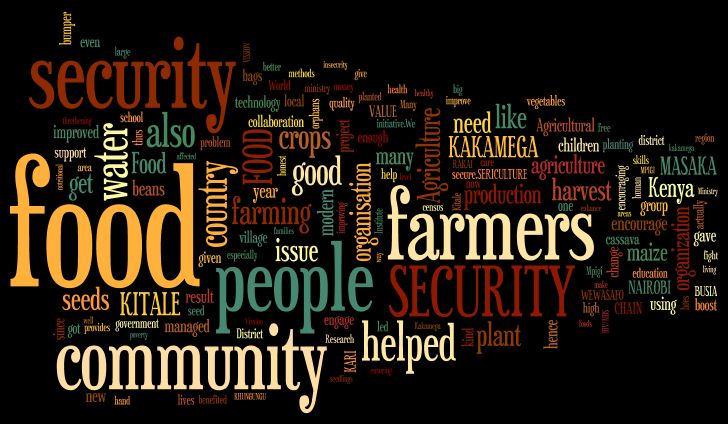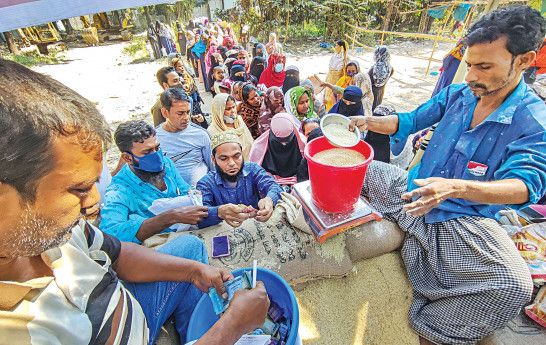Table of Contents
In today’s interconnected world, the question of whether food security is a matter of national security is more urgent than ever. On the surface, food security may seem like a humanitarian issue—one primarily about feeding people and fighting hunger. But dig a little deeper, and you’ll see that food security overseas can directly and profoundly affect a country’s safety, political stability, and economic prosperity, including that of the United States.

Why Does Food Security Matter to National Security?
Most people recognize that ensuring enough food for the population is a basic part of a nation’s security. For example, in the United States, concerns about food security date back to World War II, when malnutrition among recruits was identified as a threat to military readiness. More recently, disruptions caused by the COVID-19 pandemic and geopolitical conflicts have underscored how fragile food and agriculture systems can be—even in developed countries.
But beyond the borders of the United States, food insecurity is often overlooked as a national security issue. This needs to change because food insecurity abroad can destabilize entire regions and create ripple effects that reach American soil.

Food Insecurity as a Tool for Influence
In countries plagued by hunger and lack of resources, authoritarian leaders and hostile regimes often use food as a means of control. In Venezuela, for example, food distribution has been manipulated to maintain political power. Similarly, terrorist groups like ISIS have used food aid to build dependence and loyalty among vulnerable populations.
On a larger scale, global powers such as Russia and China have increasingly used food as a geopolitical tool. Russia’s invasion of Ukraine, a major global breadbasket, has disrupted food supplies worldwide, driving up prices and leaving millions hungry, especially in import-dependent countries in Africa and the Middle East. Meanwhile, Russia has expanded its wheat exports and provided food aid to friendly nations, securing political support and expanding its influence. China is also investing heavily in agricultural infrastructure in developing countries, often creating long-term dependencies.

Migration and Unrest Linked to Food Security
Food insecurity is also a significant driver of migration. Many who flee regions like Central America or parts of Africa do so partly because of hunger and economic hardship. This migration often leads to increased pressure on receiving countries, including the U.S., impacting border security and social services.
Moreover, high food prices and hunger have historically sparked social unrest, uprisings, and regime changes—from the Arab Spring to the protests in Sri Lanka. These events create instability in strategically important regions, complicating U.S. foreign relations and global security.
What Can the U.S. Do?
Supporting global food security is more than charity; it is a strategic investment. Helping vulnerable countries build resilient agriculture systems, improve nutrition, and reduce hunger not only saves lives but also reduces the influence of hostile powers, curbs unplanned migration, and promotes regional stability.
The U.S. has long played a leadership role in global food security initiatives, but many of these programs are outdated and need reform. Most aid still focuses on rural farmers, while the majority of the world’s food-insecure now live in urban and peri-urban areas. Improving coordination among U.S. agencies and setting clear goals will make aid more effective.
Furthermore, explicitly linking food security efforts to U.S. national security and economic interests can help build stronger political support and ensure smarter resource allocation. This means targeting assistance where rivals like Russia and China are gaining influence and emphasizing the economic benefits, such as opening new markets for American exports.

A Moral and Strategic Imperative
Beyond security, addressing global hunger is a moral responsibility shared by Americans of all political stripes. Alleviating hunger is not only the right thing to do—it also fosters goodwill and partnerships worldwide.
History has shown that a strong U.S. presence abroad, including in food security, helps counterbalance adversaries and promote a stable, prosperous international order. Investing in global food security safeguards American interests and reflects the nation’s values.
Conclusion
Food security abroad is deeply connected to national security at home. Hunger and malnutrition may not directly threaten the United States, but their effects—such as empowering hostile regimes, fueling migration, and triggering unrest—do. Strengthening U.S. leadership in global food security is a smart and necessary strategy to protect both global stability and American interests.
For the world to be secure, food security must be recognized as a vital pillar of national security.
Author Profile

- Li Li, associate professor and master’s supervisor at Southwest University. B.A. in English for Education from Southwest Normal University, M.A. in English Translation and Interpretation from China Foreign Affairs University, Ph. D. in Japanese Cultural History from Nankai University (all above are in China). Also has studied at Osaka Sangyo University and Kokugakuin University in Japan and been a Fulbright visiting scholar to Western Kentucky University in US. A multidisciplinary and versatile instructor with a trilingual mastery of Chinese, English and Japanese, known for Combining foreign language teaching with history and humanity cultivation. Academic researches center on Japanese history, international relations and Western culture studies. Work experiences include teaching at Capital Normal University, Chongqing Normal University, and Southwest University. Has published multiple academic papers, translated works, authored or co-edited several textbooks and monographs; provided language services for several high-level and high-profile international events.
Latest entries
 PoliticsSeptember 7, 2025Japan’s Prime Minister Shigeru Ishiba Resigns Amid Election Defeats:What’s Next for Japan?
PoliticsSeptember 7, 2025Japan’s Prime Minister Shigeru Ishiba Resigns Amid Election Defeats:What’s Next for Japan? GeopoliticsAugust 22, 2025The Limits of Russia’s Friendship: Moscow’s Calculated Response to the Iran Crisis
GeopoliticsAugust 22, 2025The Limits of Russia’s Friendship: Moscow’s Calculated Response to the Iran Crisis Japanese PoliticsJuly 22, 2025Japan’s Upper House Election: Prolonged Instability and Its Impact on Domestic and Foreign Policy
Japanese PoliticsJuly 22, 2025Japan’s Upper House Election: Prolonged Instability and Its Impact on Domestic and Foreign Policy Middle East AffairsJuly 20, 2025Will Israel Ever Face Consequences for Bombing Its Neighbours?
Middle East AffairsJuly 20, 2025Will Israel Ever Face Consequences for Bombing Its Neighbours?



6 comments
Ensuring food security is indeed a critical issue that touches every corner of the globe. It’s fascinating how historical events like World War II and recent crises like the COVID-19 pandemic highlight the vulnerability of our food systems. The manipulation of food as a tool for control, whether by authoritarian regimes or terrorist groups, is deeply troubling and underscores the need for ethical governance and humanitarian aid. The connection between food insecurity and migration is undeniable, but are we addressing the root causes effectively, or merely managing the symptoms? It’s striking how high food prices can ignite social unrest, as seen in events like the Arab Spring, which reminds us how interconnected food security is with global stability. While the U.S. has been a leader in global food security initiatives, the focus on rural farmers seems outdated given the urbanization of food insecurity—shouldn’t our strategies evolve to reflect this shift? What specific reforms do you think are most urgently needed to address modern food security challenges? It’s a complex issue, but one that demands innovative thinking and global collaboration.
You could certainly see your enthusiasm in the work you write. The world hopes for even more passionate writers like you who are not afraid to say how they believe. Always go after your heart.
I really treasure your piece of work, Great post.
It’s exhausting to search out educated individuals on this matter, however you sound like you realize what you’re talking about! Thanks
This is the right blog for anyone who wants to find out about this topic. You realize so much its almost hard to argue with you (not that I actually would want…HaHa). You definitely put a new spin on a topic thats been written about for years. Great stuff, just great!
Most of the things you state happens to be astonishingly precise and it makes me wonder why I hadn’t looked at this with this light previously. Your piece truly did switch the light on for me personally as far as this specific subject goes. However there is actually 1 issue I am not really too comfy with so whilst I make an effort to reconcile that with the main idea of your position, let me see what all the rest of the visitors have to point out.Well done.